BMW 7 Series VS SsangYong Korando
BMW 7 Series
The BMW 7 Series represents the pinnacle of luxury and performance in the executive car segment, offering an unparalleled driving experience. Its elegant design combines aesthetic appeal with advanced technology, ensuring both comfort and connectivity for its passengers. With cutting-edge driver assistance systems, this flagship model showcases the brand's commitment to innovation and safety.
more informationSsangYong Korando
The SsangYong Korando offers a blend of contemporary design and practicality, making it an appealing choice for urban adventurers. Its spacious interior and comfortable seating ensure a pleasant driving experience for both driver and passengers. With its reliable performance and advanced features, the Korando stands out in the competitive SUV market.
more information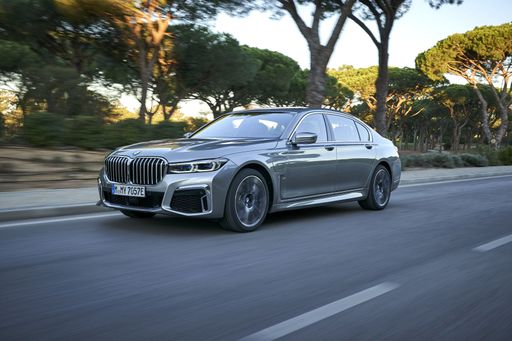 @ press.bmwgroup.com
@ press.bmwgroup.com
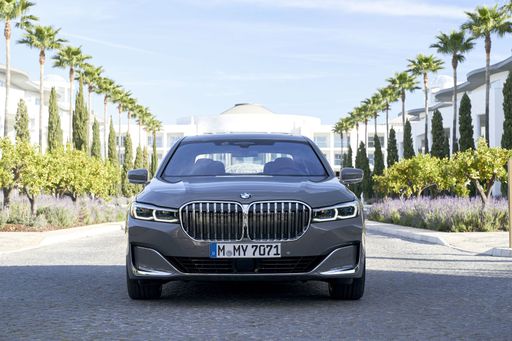 @ press.bmwgroup.com
@ press.bmwgroup.com
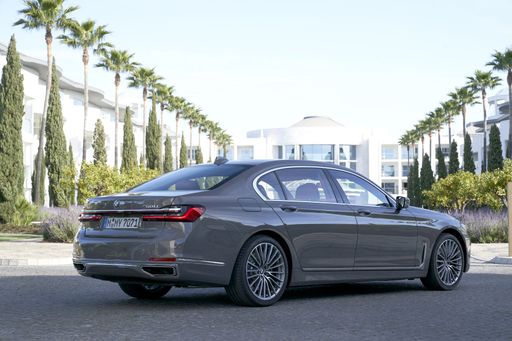 @ press.bmwgroup.com
@ press.bmwgroup.com
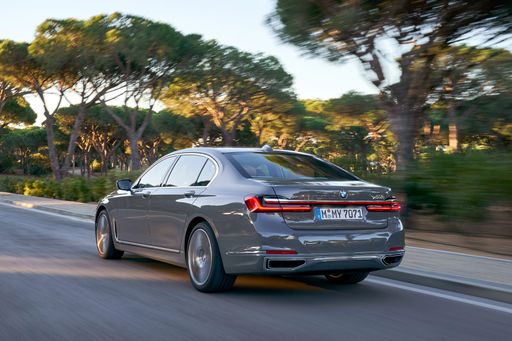 @ press.bmwgroup.com
@ press.bmwgroup.com
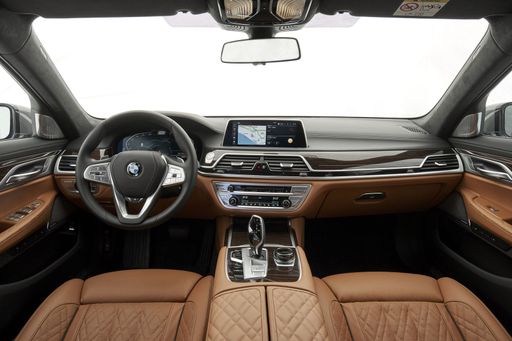 @ press.bmwgroup.com
@ press.bmwgroup.com
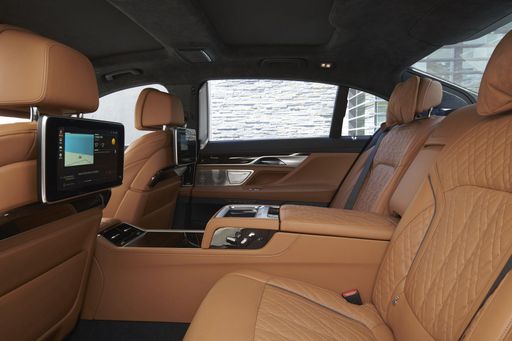 @ press.bmwgroup.com
@ press.bmwgroup.com
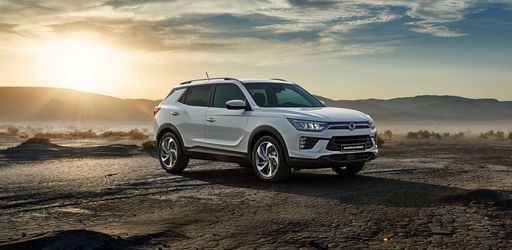 @ Ssangyong
@ Ssangyong
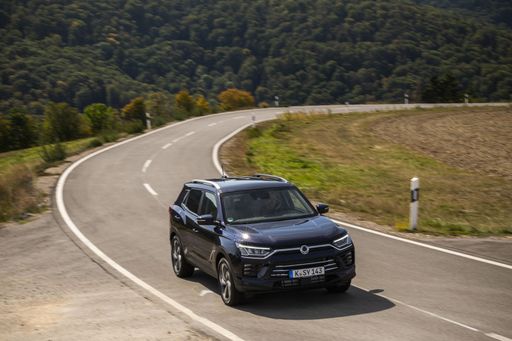 @ Ssangyong
@ Ssangyong
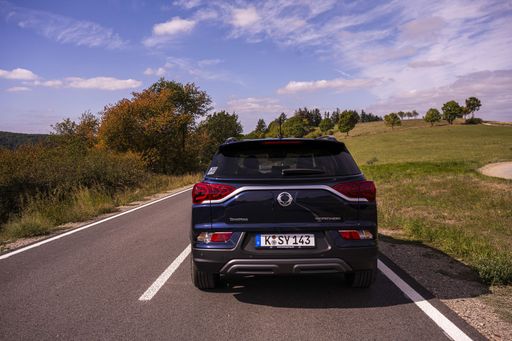 @ Ssangyong
@ Ssangyong
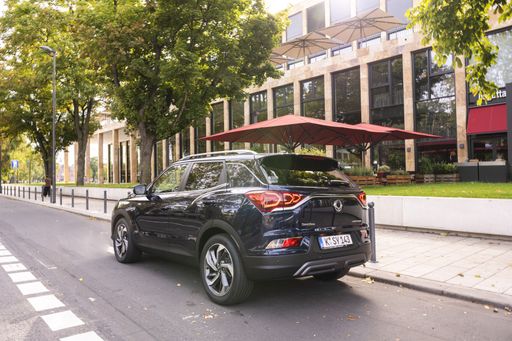 @ Ssangyong
@ Ssangyong
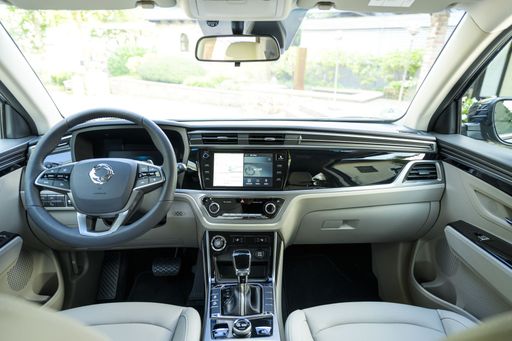 @ Ssangyong
@ Ssangyong
Costs and Consumption |
|
|---|---|
|
Price
about 100300 - 127000
£
|
Price
about 27000 - 42000
£
|
|
Consumption L/100km
1.1 - 6.2
L
|
Consumption L/100km
7.5 - 8.6
L
|
|
Consumption kWh/100km
-
|
Consumption kWh/100km
16.8
kWh
|
|
Electric Range
77 - 79
km
|
Electric Range
339
km
|
|
Battery Capacity
18.7
kWh
|
Battery Capacity
-
|
|
co2
24 - 162
g/km
|
co2
171, 182, 197, 185, 0
g/km
|
|
Fuel tank capacity
65 - 74
L
|
Fuel tank capacity
50
L
|
Dimensions and Body |
|
|
Body Type
Sedan
|
Body Type
SUV
|
|
Seats
5
|
Seats
5
|
|
Doors
4
|
Doors
5
|
|
Curb weight
2255 - 2525
kg
|
Curb weight
1517 - 1840
kg
|
|
Trunk capacity
525 - 540
L
|
Trunk capacity
551
L
|
|
Length
5391
mm
|
Length
4450 - 4465
mm
|
|
Width
1950
mm
|
Width
1870
mm
|
|
Height
1544
mm
|
Height
1620 - 1645
mm
|
|
Payload
605 - 665
kg
|
Payload
410 - 463
kg
|
Engine and Performance |
|
|
Engine Type
Diesel MHEV, Plugin Hybrid
|
Engine Type
Petrol, Electric
|
|
Transmission
Automatic
|
Transmission
Manuel, Automatic
|
|
Transmission Detail
Automatic Gearbox
|
Transmission Detail
Manual Gearbox, Automatic Gearbox, Reduction Gearbox
|
|
Drive Type
All-Wheel Drive
|
Drive Type
Front-Wheel Drive, All-Wheel Drive
|
|
Power HP
300 - 571
HP
|
Power HP
163 - 190
HP
|
|
Acceleration 0-100km/h
4.3 - 5.8
s
|
Acceleration 0-100km/h
8.4
s
|
|
Max Speed
250
km/h
|
Max Speed
156 - 191
km/h
|
|
Torque
670 - 800
Nm
|
Torque
260 - 360
Nm
|
|
Number of Cylinders
6
|
Number of Cylinders
4
|
|
Power kW
220 - 420
kW
|
Power kW
120 - 140
kW
|
|
Engine capacity
2993 - 2998
cm3
|
Engine capacity
1497
cm3
|
|
Top speed
250
km/h
|
Top speed
156 - 191
km/h
|
General |
|
|
Model Year
2023
|
Model Year
2021 - 2023
|
|
CO2 Efficiency Class
F, B
|
CO2 Efficiency Class
F, G, A
|
|
Brand
BMW
|
Brand
SsangYong
|
BMW 7 Series
Introduction to the BMW 7 Series
The BMW 7 Series has long been synonymous with luxury, performance, and cutting-edge technology. The latest versions continue this tradition, integrating sophisticated hybrid technology with distinguished design and powerful performance. Whether cruising the motorway or navigating urban landscapes, the BMW 7 Series offers an exceptional driving experience.
Technical Specifications
The 2023 BMW 7 Series boasts a range of impressive specifications and features. The engine options, which include both diesel mild-hybrid and plug-in hybrid variants, provide flexibility for different driving needs. With power outputs ranging from 300 PS to a remarkable 571 PS, the 7 Series does not compromise on performance. Coupled with intelligent all-wheel drive and an automatic transmission, it assures smooth and responsive handling.
Fuel efficiency is another highlight, with the series achieving consumption figures as low as 1.1 L/100km for the plug-in hybrid models, showcasing the brand's commitment to sustainability without sacrificing performance.
Advanced Hybrid Technology
The integration of mild-hybrid and plug-in hybrid systems into the 7 Series marks a significant advancement in BMW's pursuit of greener motoring. The plug-in hybrid variants, with a battery capacity of 18.7 kWh, offer an all-electric range of up to 79 km - ideal for city driving. This hybrid setup not only reduces emissions but also enhances acceleration, delivering a swift 0-100 km/h time ranging from 4.3 to 5.8 seconds.
Luxury and Comfort
The BMW 7 Series epitomises luxury, featuring an interior designed for comfort and convenience. Standard equipment includes high-grade materials, advanced connectivity, and cutting-edge infotainment systems. The cabin is spacious, with ample room for five passengers and a generous boot capacity of up to 540 litres, ensuring that long journeys are as comfortable as they are efficient.
Safety and Innovation
Safety remains paramount in the BMW 7 Series, with an array of features designed to protect occupants and enhance driving confidence. This includes state-of-the-art driver assistance systems, which provide support in various driving conditions, thus ensuring a safer driving experience.
In conclusion, the BMW 7 Series stands as a testament to automotive innovation, blending traditional luxury with modern efficiency and performance. It's a fine choice for those who seek the pinnacle of automotive engineering and technology.
SsangYong Korando
Discovering the SsangYong Korando: Combining Performance with Innovation
The SsangYong Korando has persistently evolved, emerging as a formidable presence in the compact SUV segment. With a blend of intriguing design, versatile engine options, and cutting-edge technology, the Korando aims to cater to a diverse array of driving preferences and needs. In this article, we delve into the technical intricacies and pioneering innovations that define the vehicle.
A Versatile Engine Line-up: Catering to Petrol and Electric Enthusiasts
The Korando provides a remarkable variety of powertrains, accommodating drivers who favour both traditional petrol engines and modern electric motors. For petrol enthusiasts, the Korando comes equipped with a 1.5 GDI-T engine, boasting a power output of 163 PS. Available in both manual and automatic transmission, and offering either front-wheel or all-wheel drive, these variants promise a dynamically engaging driving experience.
The brand’s commitment to sustainability is evident with the introduction of the E-Motion model, which is powered by an electric motor delivering 190 PS. With a commendable range of 339 km and an energy consumption of 16.8 kWh/100km, the E-Motion exemplifies SsangYong's ambition to shape the future of eco-friendly motoring.
Technical Excellence: Performance and Efficiency
With a peak speed ranging between 156 to 191 km/h, the Korando ensures that drivers experience both agility and responsiveness. The petrol variants offer a respectable efficiency, with fuel consumption spanning from 7.5 to 8.6 L/100km, while the electric variant promotes zero emissions. This makes the Korando an optimal choice for those conscious of both performance and environmental impact.
Acceleration from 0 to 100 km/h in just 8.4 seconds—paired with a torque range of 260 to 360 Nm—ensures an exhilarating ride whether navigating city streets or venturing onto open highways. Moreover, with a robust towing capacity, the Korando stands as a reliable companion for any adventure.
Interior Quality and Innovative Features
Inside the Korando, occupants are greeted by a spacious cabin designed with emphasis on comfort and practicality. Advanced infotainment systems seamlessly integrate with connectivity features, ensuring that every journey is both entertaining and stress-free. Emphasising safety, the Korando is equipped with multiple driver-assistance systems, including adaptive cruise control and lane-keeping assist.
Mirroring its exterior aesthetics, the interior is crafted with premium materials, providing a serene ambience throughout the ride. With abundant luggage space, a family of five can effortlessly embark on long-distance travels without compromises on space or comfort.
Conclusion: A Synergy of Tradition and Modernity
The SsangYong Korando seamlessly merges robust performance with cutting-edge innovation, appealing to a wide demographic of drivers. Whether drawn to the unmistakable power of its petrol engines or the sustainable allure of its electric variant, prospective owners are sure to find a model that complements their lifestyle. The Korando remains an impactful player in the SUV landscape, continually adapting to the demands of modern-day motoring while staying true to its heritage.
